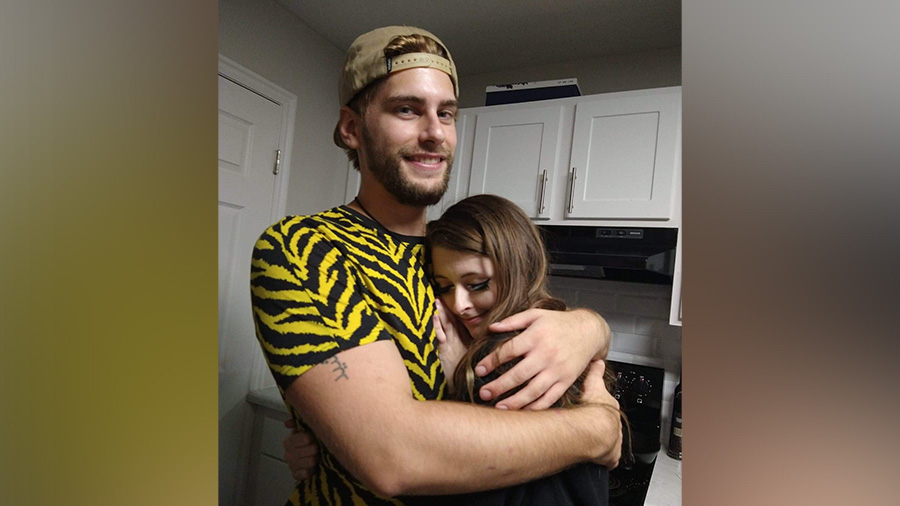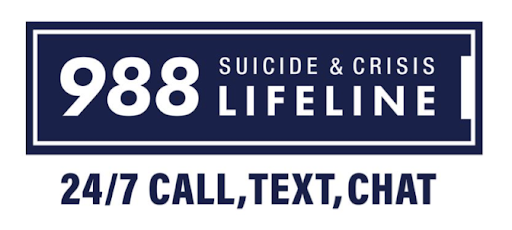KEARNS — When Aussie Marie met Joe in 2020, things just clicked.
“He had the biggest heart. Every day was an adventure,” Marie said. “It felt like that fairytale romance and love that every little girl wants.”
Just months before he was set to graduate from college in 2021, Joe took his own life.
“He was just, he was just gone,” Marie recalled.
She said she had no idea her boyfriend was struggling. To her, he was the happiest, most loving guy.
“I can play the ‘I wish’ game all day, but I wish he would’ve said something, reached out. I also wish I would’ve said something. That’s the other side of the coin,” she said.
Research shows that one in 10 men experience depression or anxiety, but less than half seek treatment.
“Men are often taught that we don’t talk about this. You just endure, you’ve got to suck it up. We’ve got to be tough,” said Jeffrey Ainsa, a licensed social worker and Clinical Director for EvolvedMD.
Ainsa said the pressure to “man up” can make men feel the need to mask their feelings, leading to a loss of hope. Any age can be affected.
According to the CDC, men aged 75 years and older face the highest overall rate of suicide.
“Some of the patients we’re seeing that are older are really talking about things for the first time in their life,” Ainsa said.
‘It’s very difficult’: RSL’s Diego Luna opens up about mental health struggles
Ainsa suggested looking for signs in loved ones of withdrawal or loss of interest. Give them a space to open up. Even asking a simple question like, “How are you?” can have an impact.
“When people genuinely can see that we’re connecting with them, that all we’re trying to do is connect and we’re going to spend that time with them, that’s going to open the door a little bit for people to feel a little more comfortable to be like, ‘Okay, maybe this safe and I can talk about this,’” Ainsa said.
For Marie, grief has been a long process. But she holds on to the promise she made at his funeral, that she would live her life to the fullest. And she’s spreading a message of hope.
“You’re not alone, even if it feels like it at times and looks like it,” she said. “You might be coming to the end of a chapter in life, but you don’t want to put down your own book.”
If you or someone you know is in need of immediate help, call or text the 988 Suicide Crisis Lifeline.
If you or someone you know is experiencing suicidal thoughts or exhibiting warning signs, call, text, or chat the 988 Suicide and Crisis Lifeline at 988 which is answered 24/7/365 by crisis counselors at the Huntsman Mental Health Institute. All calls to legacy crisis hotlines, including the old National Suicide Prevention hotline, 1-800-273-8255, will also connect to a crisis care worker at the Huntsman Mental Health Institute as well.
Additional resources
- SafeUT: Parents, students, and educators can connect with a licensed crisis counselor through chat by downloading the SafeUT app or by calling 833-3SAFEUT (833-372-3388)
- SafeUT Frontline: First responders, including firefighters, law enforcement, EMS, and healthcare professionals can chat with a licensed crisis counselor at no cost 24/7/365 by downloading the SafeUT Frontline app.
- SafeUTNG: Members of the National Guard can chat with a licensed crisis counselor at no cost 24/7/365 by downloading the SafeUTNG app.
- Utah Warm Line: For non-crisis situations, when you need a listening ear as you heal and recover from a personal struggle, call 1-833 SPEAKUT 8:00 a.m.-11:00 p.m., 7 days a week, 365 days a year.
- The Huntsman Mental Health Institute offers a wide variety of programs and services including suicide prevention and crisis services, hospital treatment, therapy & medication management, substance Use & addiction recovery, child & teen programs, and maternal mental health services including birth trauma, pregnancy loss, infertility, and perinatal mood and anxiety disorders.
- LiveOnUtah.org is a statewide effort to prevent suicide by promoting education, providing resources, and changing Utah’s culture around suicide and mental health. They offer resources for faith based groups, LGBTQ+, youth, employers, firearm suicide prevention, and crisis and treatment options.
Counties in Utah provide services for mental health and substance use disorders. Centers are run by the thirteen Local Mental Health and Substance Use Authorities all across the state and offer therapy, substance use disorder treatment, support groups, mobile services, youth treatment, and more.
These resources and more information can be found here: https://www.uacnet.org/behavioralhealth.


